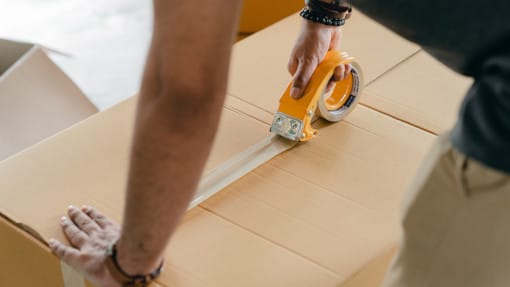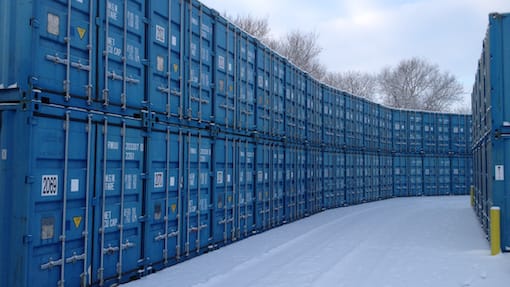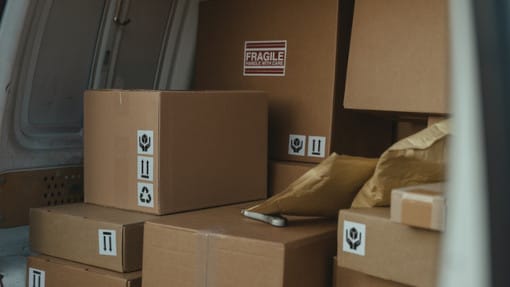Whether it’s because of an injury, obligations, or something else, you might find yourself in a position where you need to set your instrument aside for a while. Unfortunately, storing musical instruments is not simple! If done improperly, your instrument could suffer damage or even be rendered entirely useless. Therefore, whether you are planning to store it in your own home or in a storage unit, there are things you must know to do it properly. It you do need to rent a self-storage unit the advice from the experts at London Storage is to check the actual unit you will be renting as well as, obviously, checking prices at a few facilities. BTW here’s a brilliant self storage price comparison chart to help you out.

Before storing musical instruments, make sure to thoroughly clean them
It might seem obvious, but cleaning an instrument is a crucial first step in the process of putting it into storage. Moisture can cause metal parts to rust and warp. It has even worse effects on wood, where warping can lead to eventual cracking and utter destruction of your instrument. And this is not the only concern. Body acids and oils – in other words, sweat and saliva – can eat through the metal. An instrument that is often used can avoid some of these issues because it is regularly maintained. However, if placed in storage and neglected without proper cleaning beforehand, you will likely find your instrument’s sound quality and appearance spoiled once you retrieve it.
Properly prepare your instrument for packing
In addition to the regular things you should know when storing items, every instrument has specific characteristics that need to be pandered to. Here is a list of the most common considerations for preparing your musical instrument for storage:
- Woodwind instruments: You must disassemble your instrument before placing it into storage. Doing so will make sure the instrument’s joints don’t have to withstand long-term pressure. Do not forget to take out reeds and mouthpieces. Remove any straps as well. You should also place tissue paper between the instrument’s pads since it will make sure they don’t get sticky.
- Stringed instruments: Make sure to loosen the strings. Otherwise, the neck can get warped! It does not mean you should remove them entirely or leave them dangling – you only want to make sure there is no pressure on the neck.
- Brass instruments: You should remove all of your instrument’s slides and valves before placing them in airtight bags. It will prevent them from getting warped and jammed during storage.
- Pianos: You need to thoroughly wrap legs and pedals in padding to keep them safe during both transfer and storage. Unlike stringed instruments, you do not need to loosen a piano’s strings.
- Drums: Loosen the skins to prevent stretching. It will increase their lifespan. If you are using leather skins, make sure to properly oil them before storage!
Packing your instrument for storage
Even if you rent a storage unit perfect for your needs, you need to get your instrument to it and prevent it from getting dusty during its stay. If you still have the original case you bought your instrument in, use it! They were custom-made for it and will ensure nothing is damaged during the transfer. Some instruments, such as violins, are extremely sensitive to being jostled within their cases. Having the original case will ensure the minimum possible room for such things. Here’s a word of caution: always place your instruments on top of shelves and most definitely keep them off the floor. Do not put anything on top of their cases either, no matter how light it may seem! It would be best to use a tarp to cover a piano or drums and consider having professional help moving them. They can suffer some damage easily during transfer due to their size and lack of a casing.
If renting, be sure to rent a climate-controlled unit for storing your musical instruments
Instruments are ridiculously sensitive to changes in temperature. So much so that, even if you choose to disregard the rest of our advice, you should at least make sure to follow this one tip! High heat and humidity can cause moisture to seep into the wooden parts of your instrument. It would make the parts bend, expand and crack. In a less severe case, the instrument would grow moldy. Metal parts, in such conditions, would rust and grow brittle. Cold does not have any less adverse effects, either. It is particularly damaging if the instrument is left with tight strings or not disassembled. It could cause cracking, jamming, and severe warping of the metal parts. It is much preferable to rent climate-controlled storage than to spend a lot of money on repairs. You may also have to buy an entirely new instrument!
Routinely check up on your instrument
Whether it is in-house storage or a storage unit, once you choose the best solution for you, your job is not done! You might think that once you have placed your instrument in storage, your worries are over. Unfortunately, that’s not true. You should make sure to check your instruments periodically for signs of damage. Depending on how long you are planning to store them, you might want to check them every other month or once every four months. If you made any mistakes when you placed them in storage, warping, rusting, or cracking might start to occur. If you notice such things early, the repairs your instrument needs will be easier to perform and much cheaper!
Final Word
It might not seem very easy, but if you do the best you can, you will surely keep your instrument safe and sound until you need it again! We hope that our five tips for storing musical instruments have helped you with the process and that with our assistance, it will be at least a little bit easier for you to tackle the task ahead!



